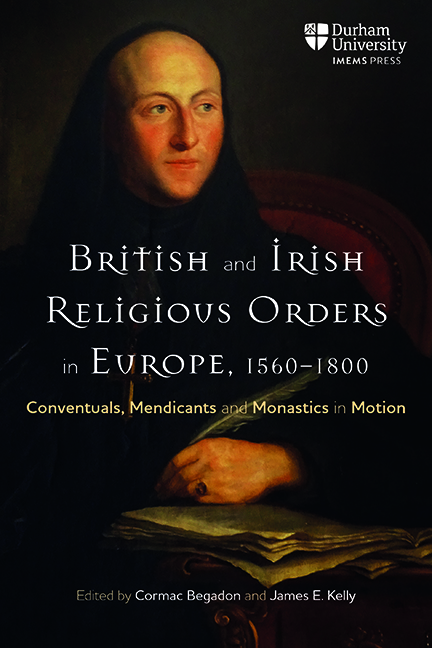 British and Irish Religious Orders in Europe, 1560-1800
British and Irish Religious Orders in Europe, 1560-1800 Published online by Cambridge University Press: 07 October 2022
In 1791, the Benedictine Charles Walmesley, vicar apostolic of the Western District, wrote to his colleague, Bishop John Douglass of the London District: ‘We exist indeed in miserable times. We have our share here, and they suffer a great share abroad; but there was a Wo pronounced by the Prophet on this period of the Church.’ Given the societal pressures on English Catholics, the upheavals in revolutionary France, and doctrinal and political strife throughout Europe, one can understand why an English Catholic prelate could be pessimistic in the 1790s.
Walmesley's evocation of ‘the Prophet’ was a reference to his interpretation of the Book of Revelation. Walmesley believed he lived in the fifth of seven ‘Ages’ – his spanned from about 1525 to 1825. It was an age dominated by immorality, heresy and schism (in that order), and characterised by violent Protestant persecution of Catholicism. Walmesley's apocalyptic interpretation of issues internal to the English Catholic community – like his struggles with recalcitrant progressive Cisalpines like Joseph Berington and the Benedictine Joseph (Cuthbert) Wilks, or with news of reform and/or revolution coming out of Tuscany, Austria and France – was interpreted to fit a narrative of history that Walmesley himself had held for decades. In 1771 Walmesley published, under the pseudonym ‘Signore Pastorini’, his programmatic apocalyptic work General History of the Christian Church. In it, Walmesley divided Church history into seven ages, marked by the seven Seals, Trumpets and Vials of the Book of Revelation. While his prophetic work earned the scorn of ‘enlightened’ Cisalpines like Alexander Geddes, it was widely acclaimed, reprinted and translated. This essay examines Walmesley's apocalypticism and argues for its effects on his reactionary orientation towards contemporary ecclesial and political issues.
Walmesley's application of John's Apocalypse to the age he lived in was profoundly shaped by his hostile view of Protestantism. This anti-Protestantism went a long way towards determining his position vis-a-vis the ecclesiastical and political controversies facing English Catholics. To Walmesley, Protestantism was the original sin of the Fifth Age and the Enlightenment; reform efforts in the Catholic Church and political revolutions were merely logical outworkings of the Protestant revolt against God.
To save this book to your Kindle, first ensure [email protected] is added to your Approved Personal Document E-mail List under your Personal Document Settings on the Manage Your Content and Devices page of your Amazon account. Then enter the ‘name’ part of your Kindle email address below. Find out more about saving to your Kindle.
Note you can select to save to either the @free.kindle.com or @kindle.com variations. ‘@free.kindle.com’ emails are free but can only be saved to your device when it is connected to wi-fi. ‘@kindle.com’ emails can be delivered even when you are not connected to wi-fi, but note that service fees apply.
Find out more about the Kindle Personal Document Service.
To save content items to your account, please confirm that you agree to abide by our usage policies. If this is the first time you use this feature, you will be asked to authorise Cambridge Core to connect with your account. Find out more about saving content to Dropbox.
To save content items to your account, please confirm that you agree to abide by our usage policies. If this is the first time you use this feature, you will be asked to authorise Cambridge Core to connect with your account. Find out more about saving content to Google Drive.